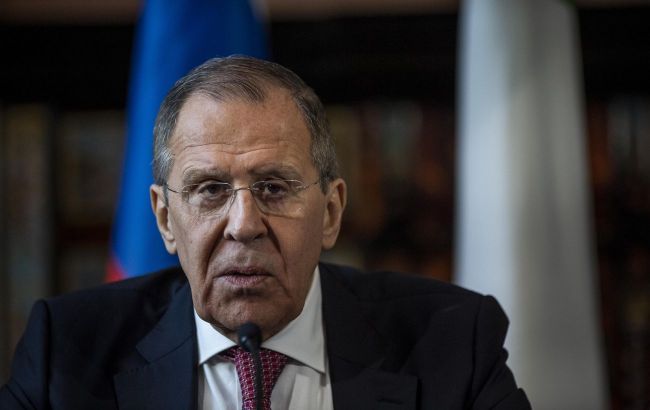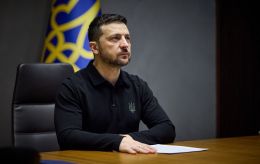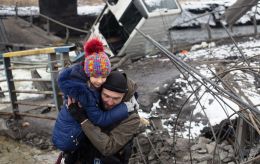Russian Foreign Minister outlines conditions for long-term peace in Ukraine
 Russian Foreign Minister Sergey Lavrov (Photo: Getty Images)
Russian Foreign Minister Sergey Lavrov (Photo: Getty Images)
Russian Foreign Minister Sergey Lavrov outlined the Kremlin’s conditions that, in his view, would ensure a lasting peace in an interview with the Indonesian newspaper Kompas.
According to the head of Russian diplomacy, achieving lasting peace requires recognizing and legally formalizing the new territorial realities following the annexation of Crimea, Sevastopol, the DPR (Donetsk People's Republic), and LPR (Luhansk People's Republic), as well as Zaporizhzhia and Kherson regions by Russia as a result of so-called referendums.
"Finally, Ukraine’s neutral, non-aligned, and nuclear-free status must be ensured. These conditions were spelled out in Ukraine’s 1990 Declaration of Independence, and Russia and the international community used them to recognise the Ukrainian statehood," Lavrov stated.
Kremlin’s stance in negotiations
The conditions outlined by the Russian Foreign Minister almost completely match the demands previously announced by Putin for Ukraine to achieve peace:
- Officially recognize Donetsk, Luhansk, Zaporizhzhia, Kherson regions, and the Autonomous Republic of Crimea as Russian.
- Stop receiving Western weapons.
- Declare neutrality.
- Refrain from joining NATO or other military alliances in the future.
Following the summit between US President Donald Trump and Russian President Vladimir Putin in Alaska on August 15, the next phase of peace talks was supposed to be a bilateral meeting between Putin and Ukrainian President Volodymyr Zelenskyy.
However, Moscow is deliberately refusing to compromise for further meetings and is delaying the process.
Trump has expressed frustration over this behavior of the Kremlin regime.
Meanwhile, Putin has threatened attacks on Ukraine’s energy infrastructure in response to numerous drone strikes by the Ukrainian Armed Forces on Russian refineries and fuel depots.
For more details on the prospects of negotiations between Ukraine and Russia, read the article by RBC-Ukraine.

